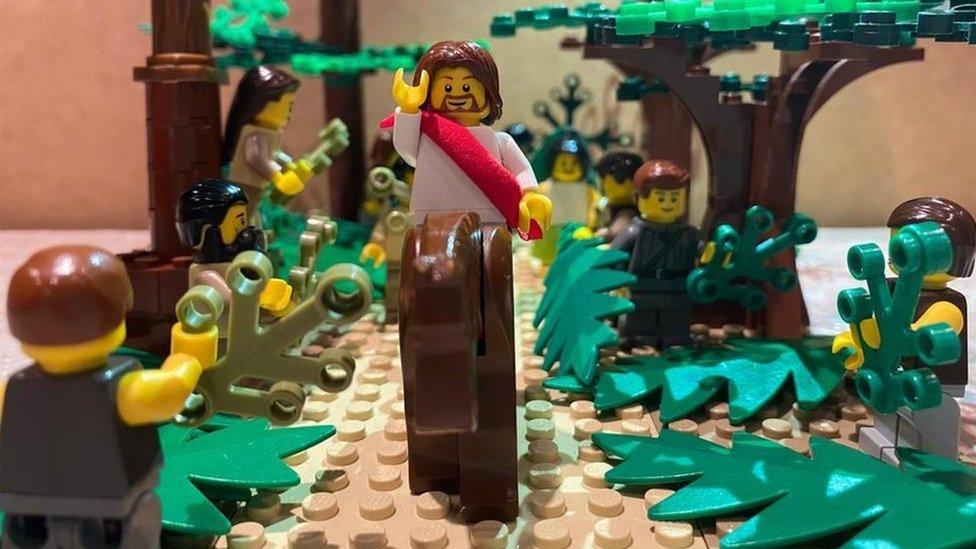Lockdown Lego: The enthusiasts building mini masterpieces
- Published
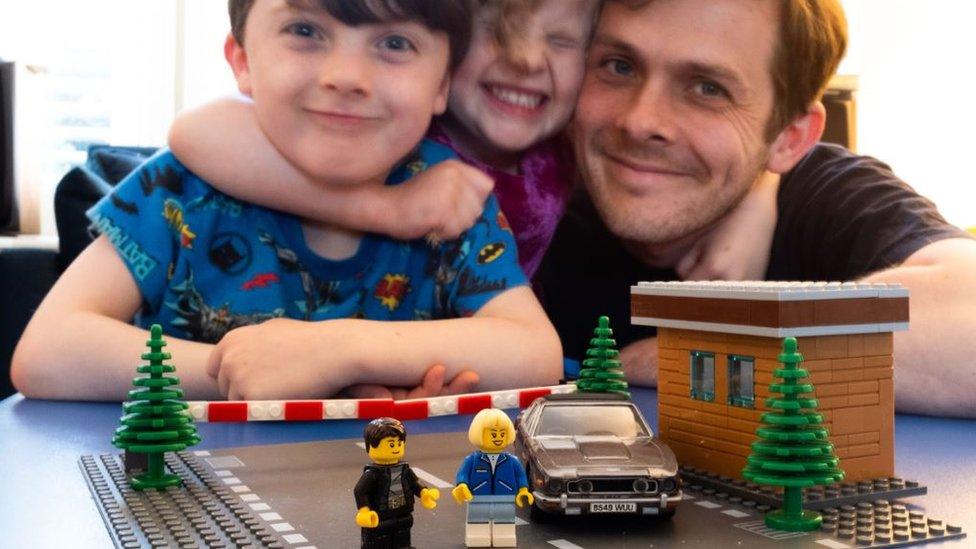
Jon Opstad and his children, Ollie and Alice, have been making stop-motion Lego movies based on James Bond classics
Thousands of Lego-builders have been taking advantage of lockdown and making use of their spare time to create stop-motion movies and models of real-life constructions.
The Danish toy has been the subject of more internet searches during lockdown than in the same months in previous years, while in March the search term "Lego challenge" reached a "record high", according to Google Trends.
So, why have so many people turned to the little plastic bricks for entertainment and what comfort has it brought while holed up at home?
'The fireball was a 'don't try this at home' moment'
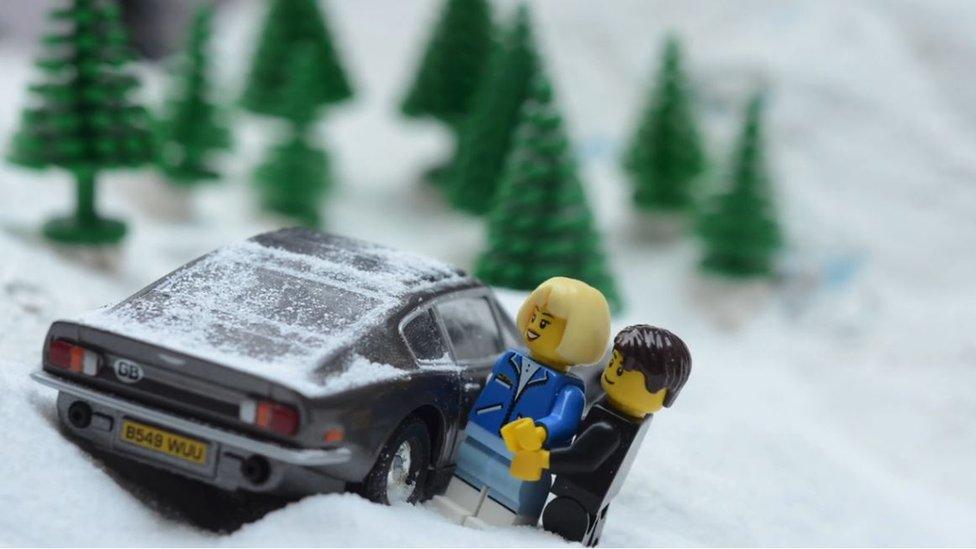
Soda crystals made "very realistic snow" for this Bond recreation
"I never expected it to get this much exposure - I've had more credit for this than for my actual work," said composer Jon Opstad.
With the help of his six-year-old son Ollie and four-year-old daughter Alice, he has been recreating famous James Bond scenes from the likes of Thunderball and The Living Daylights.
Their stop-motion animation of "the jet-pack scene" from Thunderball has been shared almost 400,000 times on social media, including by Lego, the official James Bond account, and celebrities such as David Walliams and James Corden.
Allow X content?
This article contains content provided by X. We ask for your permission before anything is loaded, as they may be using cookies and other technologies. You may want to read X’s cookie policy, external and privacy policy, external before accepting. To view this content choose ‘accept and continue’.

"Everything was done on camera, no special effects were added later," said the 36-year-old 007 fan.
"We found soda crystals made very realistic snow and we even managed to make the Aston Martin car look as though it was being blown up using a small fireball.
"That was a 'don't try this at home moment'."
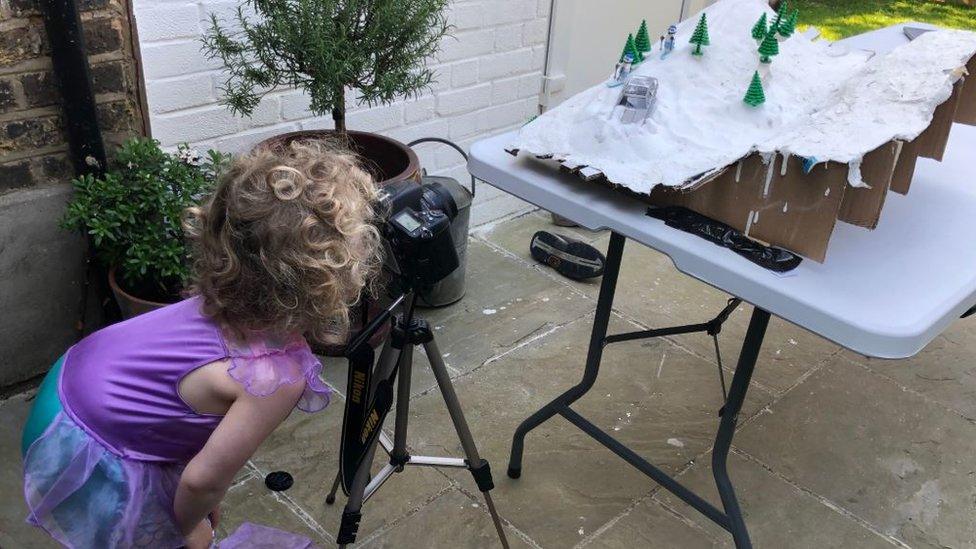
Four-year-old Alice and Ollie, six, have been helping build sets and taking photographs for each frame
Mr Opstad, from Haringey, north London, said they worked on creating the scenes for three hours a day for a week.
"The kids were very much involved in building the chateau for Thunderball and other sets, as well as painting backdrops, though when it got to the boring stage of taking lots of photos, I took over."
Allow X content?
This article contains content provided by X. We ask for your permission before anything is loaded, as they may be using cookies and other technologies. You may want to read X’s cookie policy, external and privacy policy, external before accepting. To view this content choose ‘accept and continue’.

Mr Opstad described making the movies as "really positive time spent with the children".
"Lego is great for problem-solving and creativity so it has been a great way to get the kids involved in something that isn't screen-time."
He said he was keen to create a scene from another four Bond films, in order to include all six 007 actors, but added "it might be a little over-ambitious".

'A welcome respite from home-schooling'
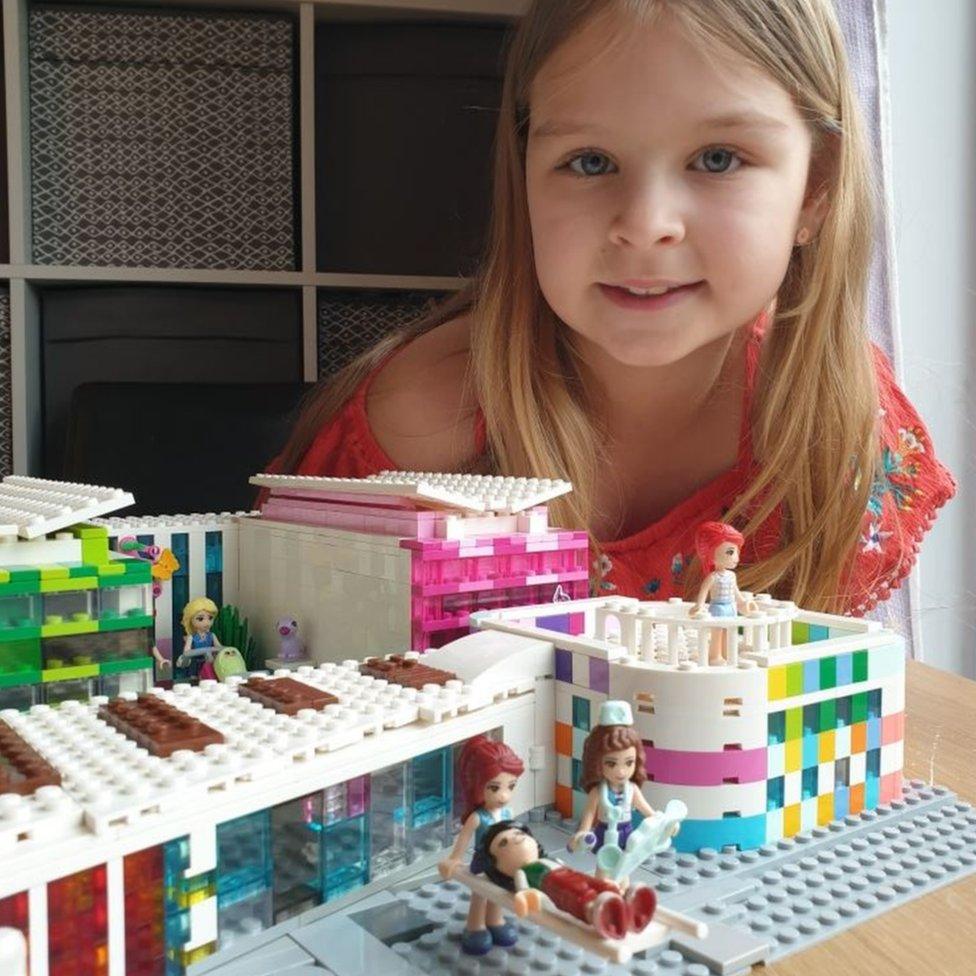
Elise Parkes was set a school project to create a local building and chose to make the nearby hospital out of Lego
"It's an iconic local building and, given the current situation, the NHS was at the forefront of my mind," said Ricky Parkes, who helped his daughter Elise recreate King's Mill Hospital in Sutton-in-Ashfield, Nottinghamshire.
He said the eight-year-old was given a task by school of making a model of a local building from any material.
"We used at least 1,200 bricks from a lot of sets that we have collected over the years, even some from my childhood," said Mr Parkes.
"We actually ran out of white bricks so the back of the hospital is made up of various multi-coloured bricks."
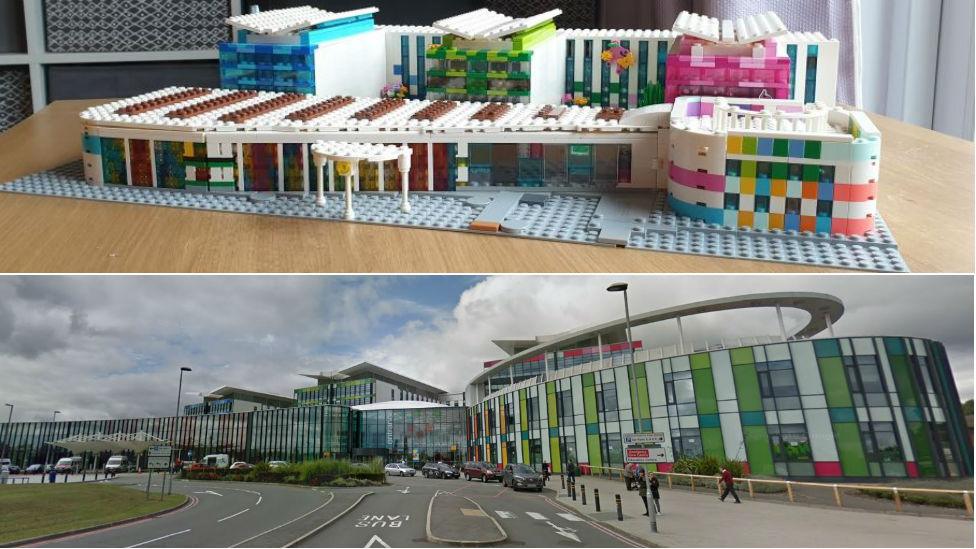
So, which is the real King's Mill Hospital?
He said the pair had previously done other "big builds" together, like the Harry Potter Hogwarts Castle, and described the time spent together as "amazing".
"As my wife and I have been furloughed from work, we have both been home-schooling the children. As much as we try to make it fun, it can be a little stressful at times, so this project was a much welcome bit of respite for us all."

'We ended up on telly in Australia'
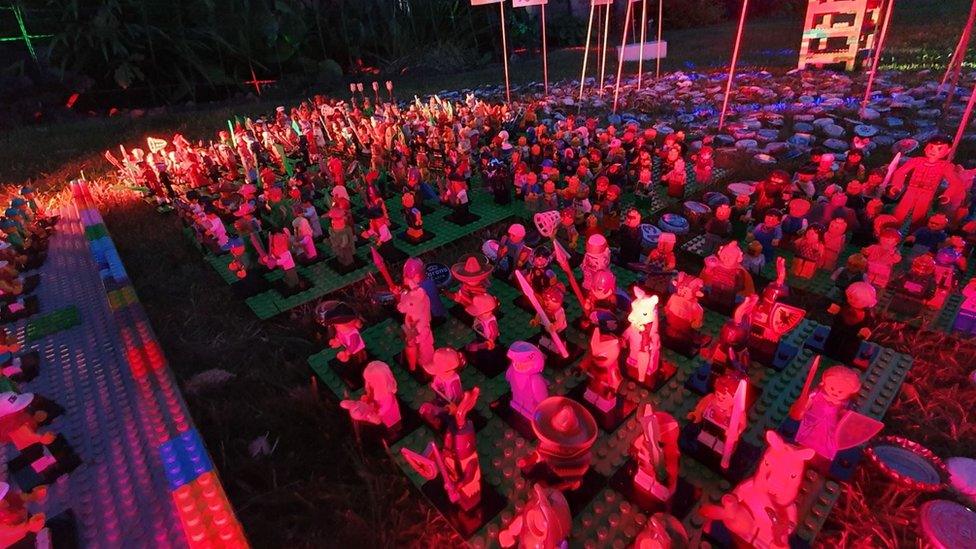
Music festivals have been the preferred theme for Cheshire housemates Jonathan Oakes and Adam Hardman
Jonathan Oakes and his music festival-loving housemate Adam Hardman started off by making a model of Glastonbury's Pyramid Stage before moving on to recreating Creamfields and the 1985 Live Aid event, complete with lights, smoke and music.
Their homage to the Worthy Farm extravaganza has had about six million views across social media and the pair have had people offer money for their models, with requests from Japan and New York.
They have even appeared on a chat show in Australia.
"When people who were missing not being able to go to festivals this year saw it, it just blew up," said Jonathan, from Warrington.
"It started off as just two blokes messing about and killing some time in the garden and the next thing we know we're on telly in Australia - crazy."
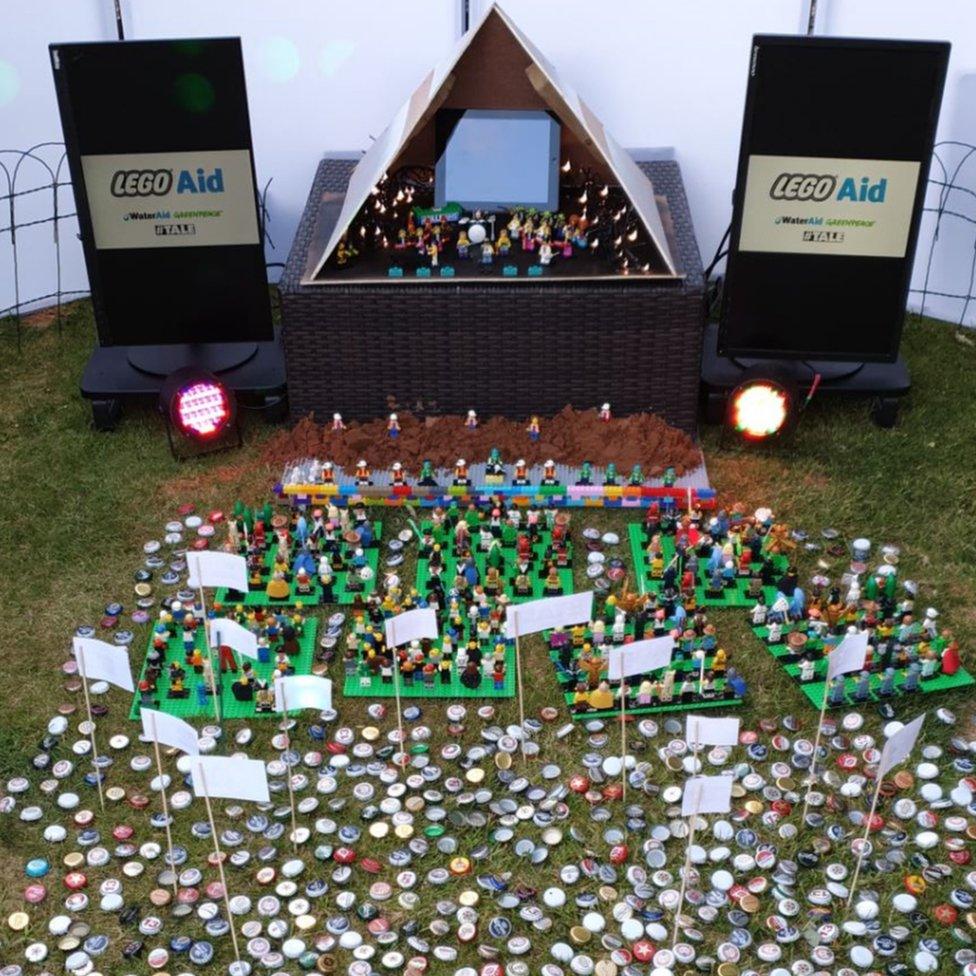
They started with a homage to Glastonbury and most recently paid tribute to the 1985 Live Aid event
The project took on a life of its own and grew bigger as the pair kept adding to their models.
"We had a load of old Lego in the loft that we've both had since we were kids. Once the stage was done we wanted to make it look like the figures were singing on stage," said Jonathon.
"Then we made it look like there was a bit of a crowd and we just kept adding to it and adding to it. We started at lunchtime and by 11 o'clock at night we were still out there. After sundown the atmosphere was just incredible.
"Adam has done DJing, so that's where the lights and smoke machine came in."
You might also be interested in:
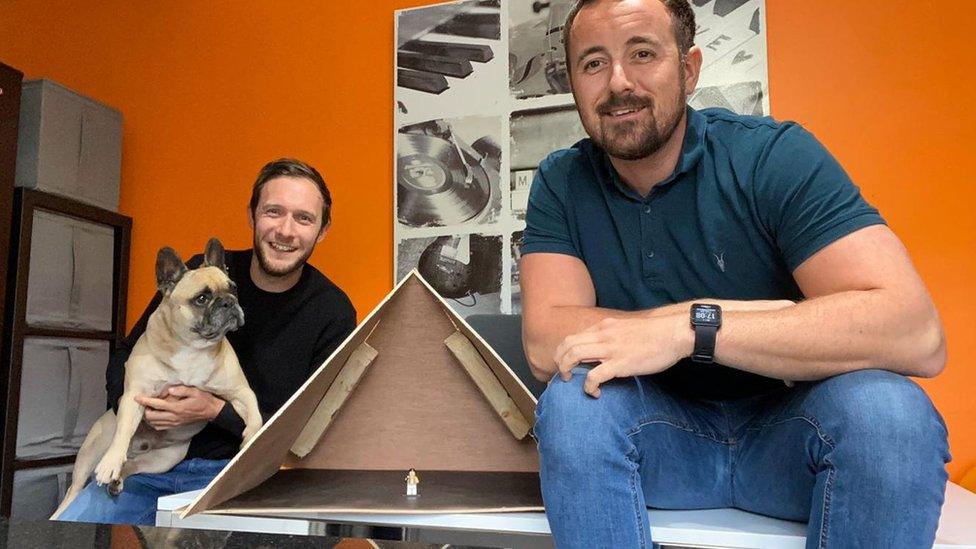
Jonathan, left, and housemate Adam are hoping their creations will raise money for charity
Even though people are willing to buy their creations, the pair are now using their builds to raise money for charity.
The Adam Lewis Effect Foundation was up set up after their friend, Adam Lewis, died from Sudden Arrhythmic Death Syndrome in 2014.
The charity, of which the housemates are both patrons, raises funds to provide cardiac screening for young people.
"We have instead asked people to donate money in memory of Adam," said Jonathan.
'I couldn't go to the pub... so I made one'
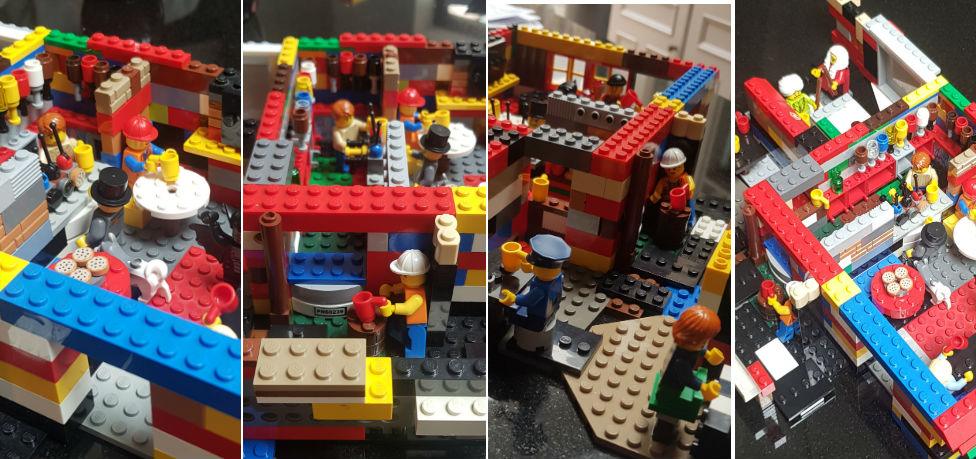
York's Phoenix Inn was reimagined in Lego by Tim Hatton, who was missing trips to his local pub
"Building Lego has always been very much a happy thing for me to do - it's probably no surprise I went on to be architect," said Tim Hatton.
"I created my local pub, the Phoenix Inn, out of lots of bits and pieces from different sets, as a way of getting a bit of 'me time'.
"I thought it would be fun to build a pub, given I couldn't go to one, and then ask people to guess which one."

The 38-year-old architect said his love of Lego from an early age was probably what had led to his career choice
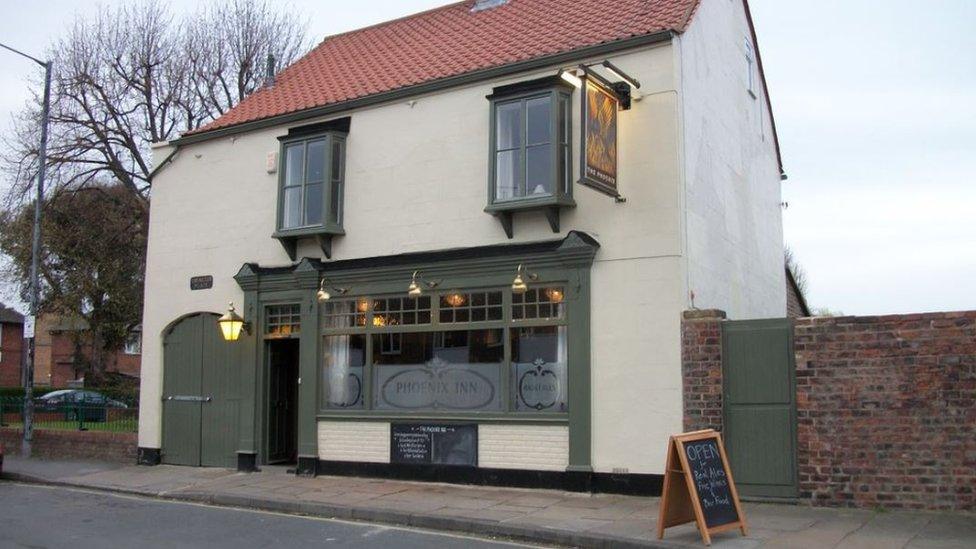
He said the Phoenix Inn, on George Street, was "full of character" and "interesting features"
It took the 39-year-old from York about four hours to create his mini masterpiece, which he later posted a picture of on social media.
"I did Google a few photos of it but to be honest I've spent quite a bit of time in there so most of it was done from memory.
"It has quite a lot of interesting features - a lovely fire, quite a compact bar area and three openings on to the bar, including one from an usual little corridor. It's full of character."
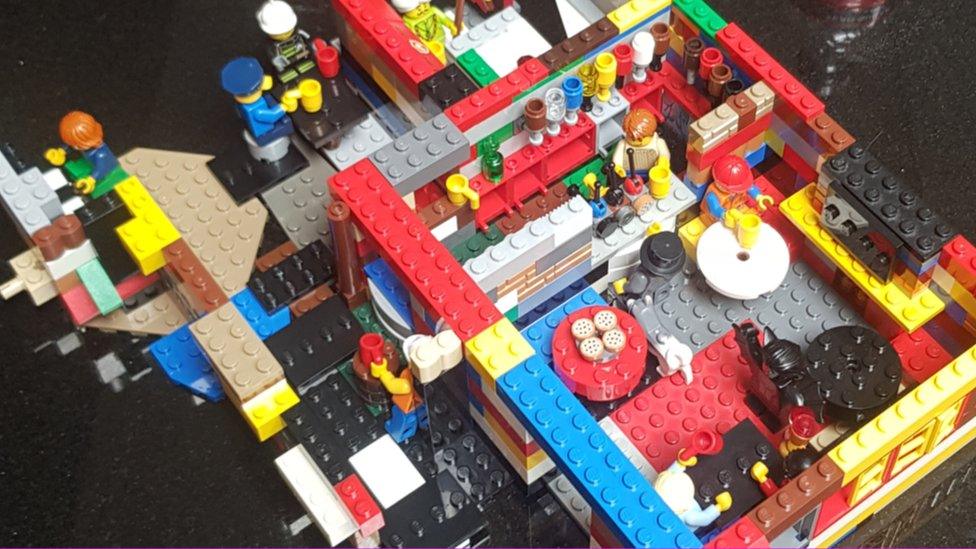
Most of it was created from Tim's memory as he has "spent quite a bit of time there"
Mr Hatton said it had been "a great way to take my mind away from everything".
"People's mental health is one of the biggest concerns that's coming out of this in the long-run. I will definitely create more."
'It's quite therapeutic'
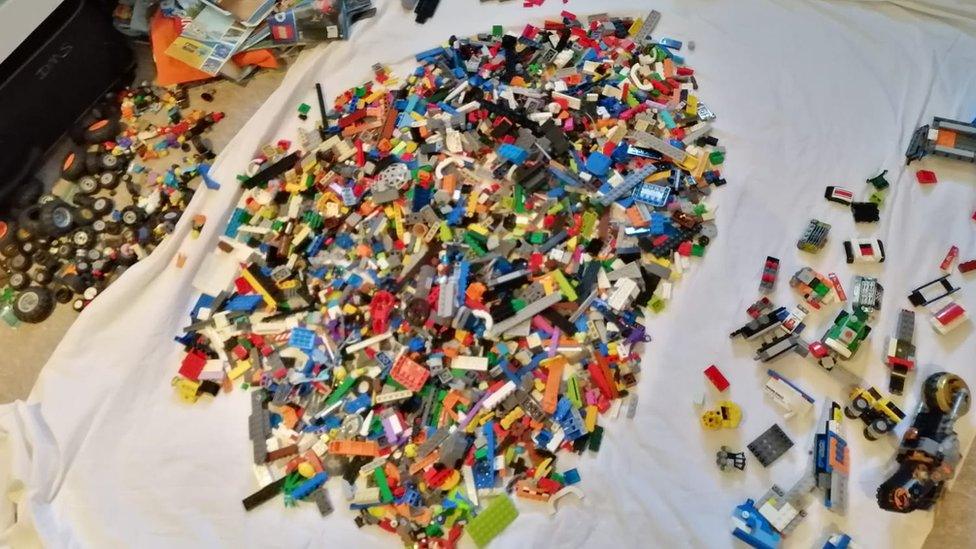
Mel Abbott and her eight-year-old son Buddy started out with lots of single bricks
Mel Abbott and her son Buddy have been sorting through and reconstructing disused sets - turning them back into monster trucks, caravans and cars one layer at a time.
But first of all they had to categorise hundreds of individual bricks because their 30 sets had been mixed up over the years.
"Its been nice to spend time working together, and it's also quite satisfying," said Ms Abbott, from Wareham in Dorset.
"They had been built and taken apart over about four years, so there were a lot of single bricks. Luckily I'd kept all the instruction books."
She and Buddy, eight, have gone one step further and put the bricks into colour-coded boxes so they are easier to find in future.
"If we've not been able to find the right pieces we have had to adapt and use a different colour brick," she said. "We are now into the third week - doing about one to two hours work a day, rebuilding up to two models each day.
"It's quite therapeutic putting them back together but we are definitely not going to buy any more."
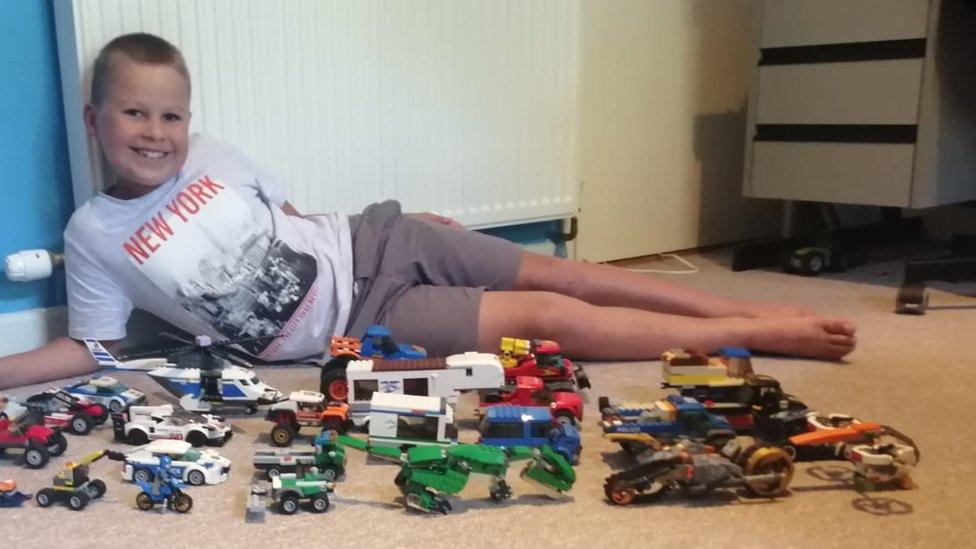
Buddy has been helping to turn disused sets back into monster trucks, caravans and cars

A SIMPLE GUIDE: How do I protect myself?
AVOIDING CONTACT: The rules on self-isolation and exercise
LOOK-UP TOOL: Check cases in your area
MAPS AND CHARTS: Visual guide to the outbreak

- Published31 March 2020
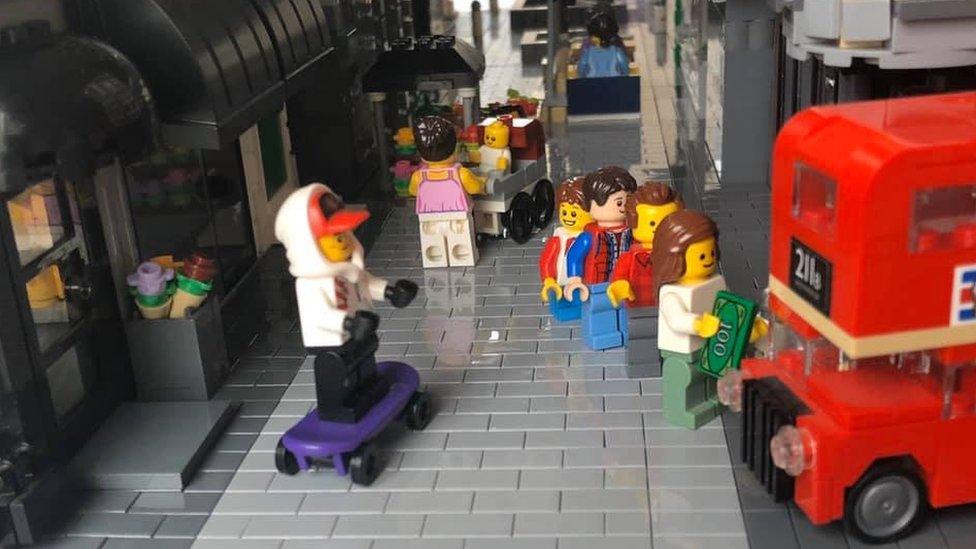
- Published10 May 2020
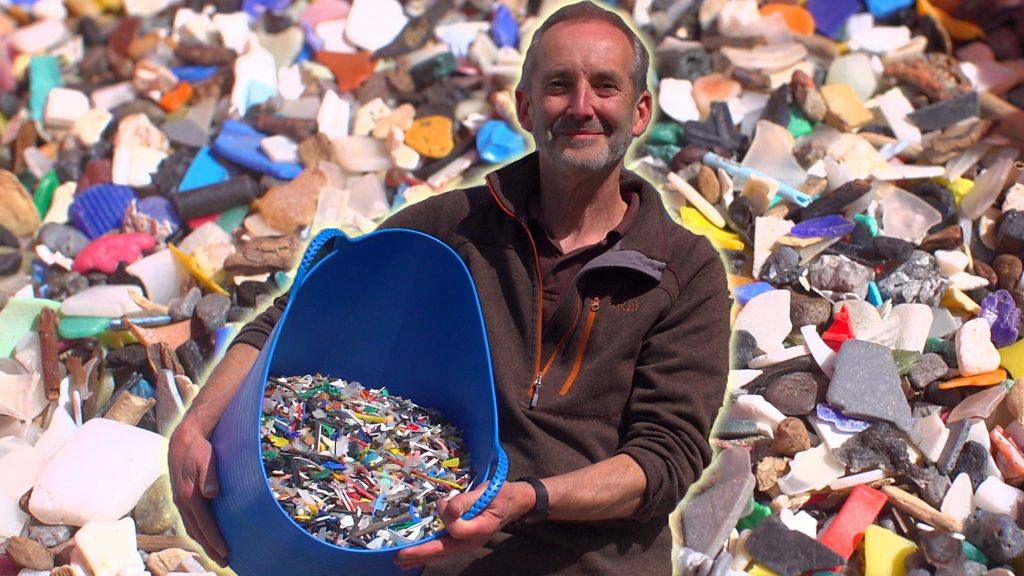
- Published10 April 2020
